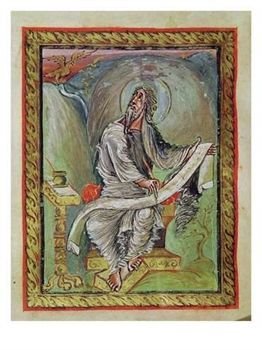It seems to me that the feminist gender theory conviction that gender roles are socially constructed and their conclusion that, therefore, they are artificial and infinitely malleable is seriously flawed. First of all, anyone who believes that men and women do not have genetic differences in their personalities and dispositions is a fool.
I can normally see where people are coming from in their beliefs. I can understand why someone might be a Marxist or even an anarchist; I can understand why someone would be an Atheist. I do not believe people who hold these convictions are necessarily fools. But people who believe there are no innate differences between men and women are fools. Of course there is.
That said, however, my primary objection with the gender role people is not along those lines. In fact, I believe that a great deal of what we understand as the dominant differences between men and women probably are, at least partially, socially constructed. Where I really disagree with them is their equating the socially constructed with the artificial-- With their idea that the socially constructed is a non-essential aspect of humanity.
Mother lions have to teach their cubs how to hunt. It in no way follows that hunting is an artificial and non-essential aspect of what it means to be a lion. In fact, we all recognize that a lion that is born in captivity, or an orphan cub, who never learns to hunt has been robbed of something of what it means to be a lion, and we are right. They are “almost” lions. This is the case because lions are social animals and being a social animal means more than being an animal that happens to share a meal or a den. Social animals require each other. They are not complete without society. A lion, unlike an insect, is not defined completely by their genome, something intrinsic to being a lion resides outside of any given individual, and they share it.
Humans are, of course, far more sophisticated than lions, and far more social. As Aristotle noted a man who lives outside of society is a god or an animal, not a man. This does not mean that we just happen to like each other, or that somewhere along the line, as Locke and Hobbes entertained, a bunch of independent humans came together because it was more profitable. Rather, it means that the very structure of what it means to be a human includes a community. Modern thought, especially linguistics, never tires of driving home the point that culture is an intrinsic component of humanity and not something tacked on, something that can be discarded. Mankind has far less instinct and far more culture than any other animal.
So the assumption that the cultural component of gender roles is necessarily unnatural or imposed is unfounded. Now they would argue that it is at least subject to change, that it is exactly the ability of culture to change that allows for remarkable adaptability of man, and they would be right. It can change. But then the question becomes not whether people reinforce gender roles when they give their daughters dolls and their sons guns, the question is whether these gender roles are like hunting for a lion—whether they are something we can do without, or when we rob a little girl or boy of their culturally conditioned femininity or masculinity they are like the orphan lion cub— sad specimens of “almost” humans. Only in that case what they are expected to live without is the very framework by which we understand social interaction at the most basic level, that of procreation.
Now I think that gender roles are precisely such essential culturally constructed aspects of humanity that work in conjunction with biological facts to create stable, healthy, and happy societies. That I am mistaken in this belief is what feminists have to convince me. Good Luck.
Subscribe to:
Post Comments (Atom)

No comments:
Post a Comment